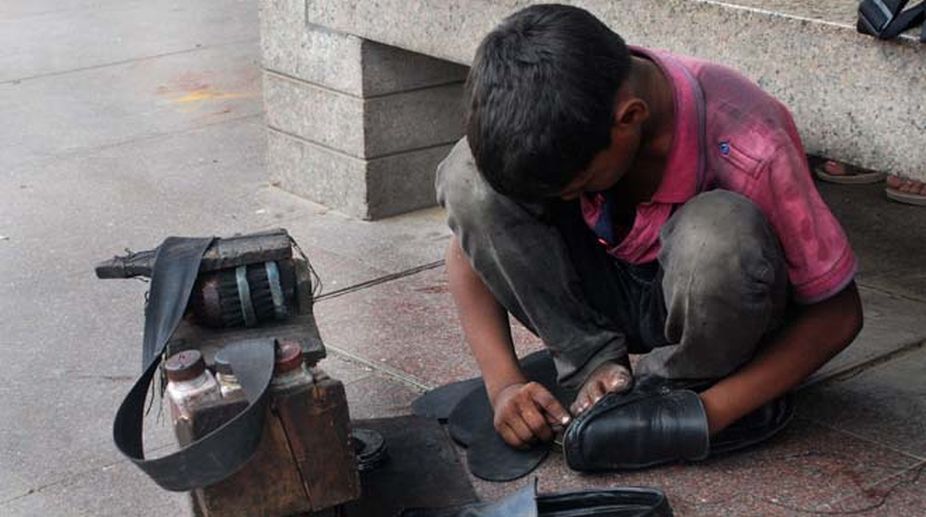Premiere of ‘Jungle Satyagraha’ highlights Tribal struggle against British rule
The premiere of the movie Jungle Satyagraha was held on Monday at the auditorium of the State Assembly in Bhopal.

Representational image (Photo: SNS)
When promoted to executive status, my style needed an upgrade, my boss decided.
He introduced me to his shoemaker, Jin Cheung. I had used off-the-shelf shoes all my life and had no idea of custom-made shoes.
Advertisement
Jin was to change all of that. Jin’s grandfather had moved from the depressed Fujian province of China to Rangoon, capital city of Burma, now Myanmar.
Advertisement
He was a master shoemaker, whose handiwork adorned the feet of the Burmese elite.
When the Japanese 15th Army invaded Burma in January 1941 after taking China and the Philippines, he advised his son, who had just completed his apprenticeship in the trade, to move to the bustling Chinatown in Kolkata, India. It was an easy move, since Burma was a part of British India, and the son established and grew in time a successful shoe repair business in Calcutta.
Jin, the grandson, had a different idea. He cared little for his father’s lucrative repair business, and focused on the small number of clients who wanted handcrafted customised shoes. He longed to use the extraordinary skills he had seen his grandfather wield.
Jin pressed his father to teach him the subtleties of fine shoemaking that business imperatives had led the old man to put aside. It worked. Among the nouveaux riches in post-war India, the extraordinary quality of Cheung upscale footwear soon became the talk of cognoscenti.
When I met Jin, he was 47, a small, humble, modestly dressed man, who gave no clue to his encyclopedic knowledge of shoes.
He asked, in his limited vocabulary, if I “liked” shoes. Confused, I told him that I did not have any strong feelings, but could see that some shoes were designed beautifully while others weren’t. He seemed to approve of my sense of discrimination and went on to ask if I knew much about leather. When I confessed I didn’t, he gently reassured me that he would correct the situation shortly.
He spread out on my desk a large number of samples, and proceeded to describe their origin, features, processing and characteristics.
Next was the design. He focused on dress shoes, and showed me a bewildering variety of styles from four catalogs. As with the leather, he expertly narrowed the display to my preferences, but gently, succinctly explained the merits and disadvantages of a choice.
It was an extraordinary guided tour with a mild-mannered master intent to help me make the smartest decision.
I felt both so educated and entertained that at the end I unhesitatingly ordered two pairs and did not even ask his price. Jin took my measurements. I was astonished that he not only measured the length and width of my feet, but also checked out the individual toes, heel and instep.
He then requested me to walk a few steps and studied my stride and style. He even made me remove my socks and examined my feet for corns and bunions, to better understand, he said, how my feet reacted to shoes. He returned three weeks later with the half-made shoes for a trial.
They seemed to fit perfectly, but Jin thought otherwise and made punctilious notes of what needed to be improved. My interest provoked, I ordered another pair of casual shoes.
When I got the three pairs a month later and tried them on, I told Jin in total sincerity that I had never worn shoes of such quality.
They felt ‘natural’ from the first instant: wearing them, one forgot their existence. Over the next several years I ordered more shoes from Jin and introduced some friends to his wizardry. Jin became more like an admired friend. He came for work to my office and I would typically take him for lunch to a Chinese restaurant next door.
I remember him regretting that none of his two children was interested in shoes and wanted the more ‘prestigious’ occupation of a doctor and an engineer
In 1962 the Chinese Red Army marched into northern India and a war ensued. Many Indians saw it as an act of treachery; some demonstrated against the Chinese and there were cases of vandalism in Chinatown.
Jin told me that his business had suffered greatly as several customers had deserted him. He was disconsolate, as he considered India his homeland. The following year Jin reluctantly migrated to Hong Kong.
He sent me a farewell note before he departed. He spoke of an uncertain future and the burden of starting in a new country at a late age.
But the last sentence revealed his biggest concern: “I hope my children will change their mind and start taking some interest in shoes.”
The writer is a Washington-based international development advisor and had worked with the World Bank. He can be reached at mnandy@gmail.com
Advertisement